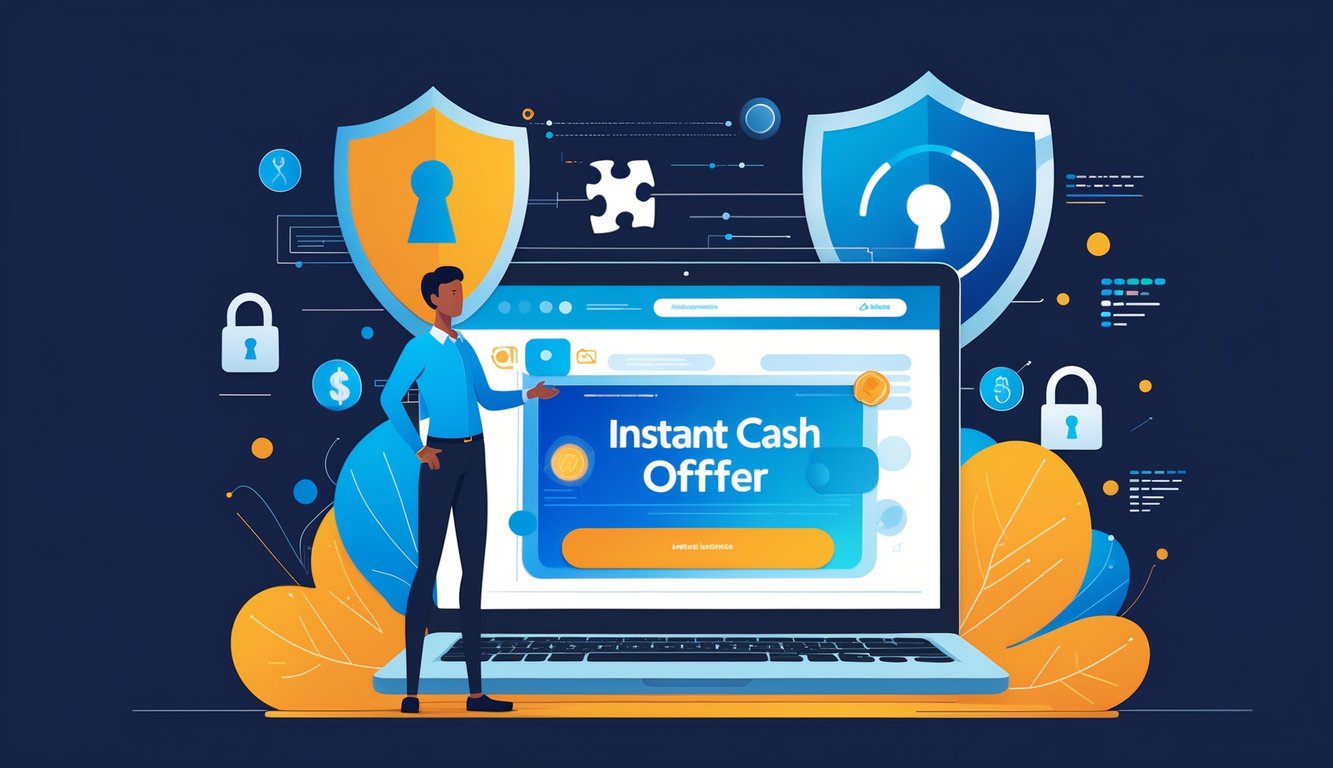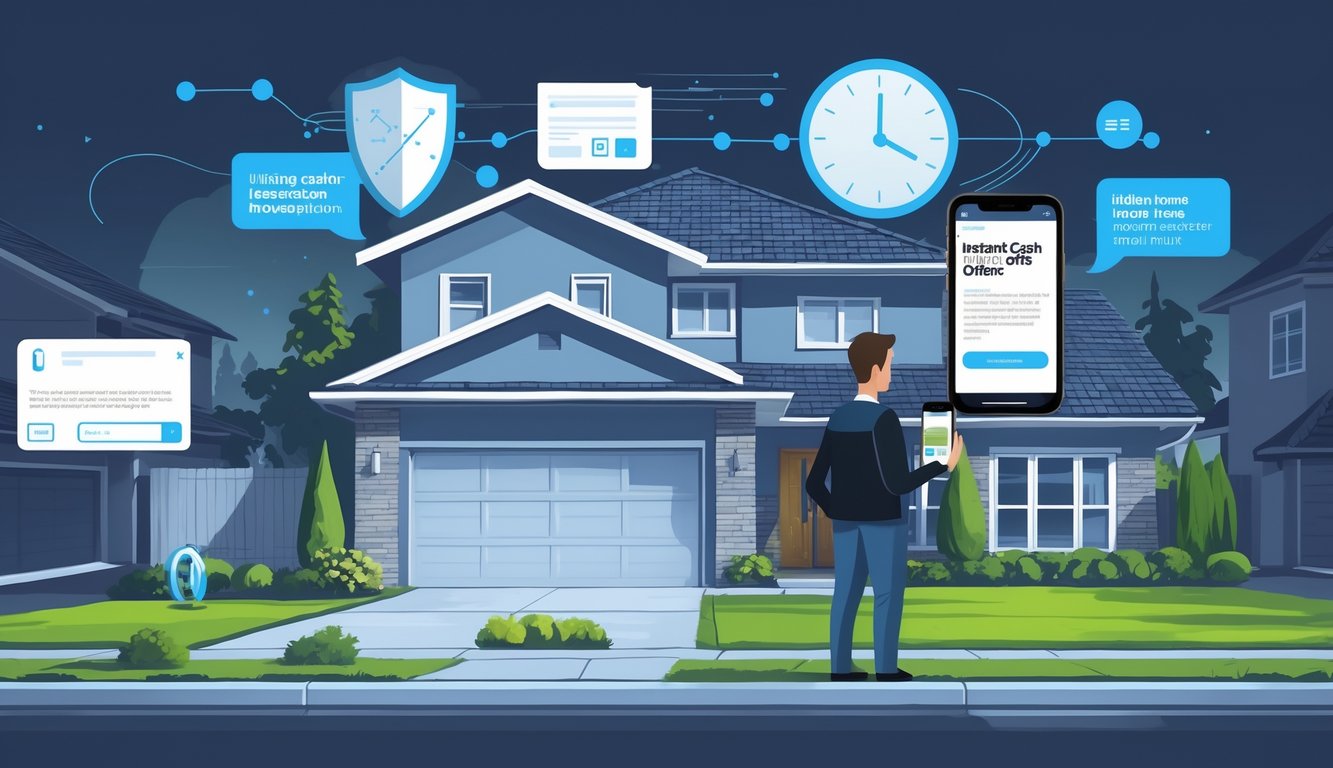
Risks of Accepting Offers Without This Protection
Reddit’s a mess, but the horror stories are real: someone lists a camera, accepts an instant offer, meets the buyer, hands it over, payment “pending.” Spoiler—no money ever shows. Without buyer checks or escrow, sellers are just sitting ducks. You can’t freeze their funds, can’t reverse fraud, can’t even take them to small claims because the site’s ToS tells you to get lost.
Financial toxicity—that’s what this is. The risk all lands on the seller. Someone from the FTC (actual FTC, not a random blog) said at some summit, “Speed comes at the direct expense of seller safety in most unregulated marketplaces.” That stuck with me. At best, you might get a bot apology and a “thanks for your feedback” if things go wrong.
Last May, my friend tried selling sneakers—the “guaranteed protection” was just a bot confirming shipment. If the payout failed, support sent you to a chatbot (which, by the way, said tracking was “unavailable”). Ridiculous. And there’s always a $3 “premium listing” pop-up for “extra protection” that doesn’t really exist. The disconnect is wild.
Real-World Examples of Unprotected Sales
Here’s a good one—my neighbor (she’s a teacher, not an idiot) listed her Nintendo Switch on one of these cash apps. Buyer shows up, flashes a fake transfer confirmation, grabs the Switch, vanishes. She calls the platform—auto-replies, “please see our safety tips.” That’s it. Meanwhile, the National Consumers League says complaints about no-show payments for in-person online sales jumped 42% last year.
I did a “mystery sell” once—the buyer claimed “item not as described,” no photos, and my money got frozen while I had to prove everything. The site had a “Seller Protection” badge, but the fine print wanted video of the shipping label and proof the buyer read instructions. Who does that?
Just found out one “instant payment” service only processes at 4 PM. If you hand over the item before then, you’re basically gambling. Most of us don’t think about this stuff until we get burned. And the only thing in place to stop it? Chatbots. Useless.
Comparing Instant Cash Offers to Traditional Selling Methods
You know what’s infuriating? After one search, I get ten “guaranteed” instant cash offers in my inbox. Not a single one says what happens if the wire fails. I’ve lost sleep over whether these digital deals are any better than just meeting a stranger in a parking lot with a wad of cash (last time: coffee stains, a dog, and awkward silence).
Online Instant Offers vs. Local Sales
People keep telling me places like CarMax or Offerpad “make it easy”—like it’s magic. I waited two days, got three emails, each with a slightly better price, but buried in the terms: all sales final once processed—seller assumes risk if funds don’t show up. Not exactly something you want to explain to your accountant. At least with Facebook Marketplace, you meet, shake hands, and hope they Venmo you.
Tech’s supposed to make this safer, right? Not really. Some lawyer in the AARP bulletin last year warned about “chargeback risk even with cash-like apps.” At least in person, I can glare at someone if they try something sketchy. Online, I just send support tickets into the void. My friend once sold a couch locally and got paid in quarters. Still got the money, though.
Benefits and Drawbacks of Each Method
Honestly, convenience sounds great until you actually try it. I got some “instant” offer online—took, what, fifteen minutes?—and then, surprise, “verification” took two days and they skimmed off a 2% fee. Couldn’t get a straight answer about what happens if the ACH fails. Called support; got dumped into an endless robot loop, no human in sight, just more legalese. I mean, is this supposed to be progress?
Local deals are a headache, too. You meet up, someone forgets their ID, or they show up with the wrong amount—like, why am I even here? My neighbor, works at a credit union, keeps telling me to use certified cashier’s checks for anything over two grand. He claims digital reversals are rare, but physical fraud is easier to spot. Maybe that’s true, maybe not. Online offers save you from awkward bargaining, but if the transfer blows up? Good luck. Sometimes I think actual cash—like, crisp bills in hand—is the only thing that still feels real.
Common Risks Faced by Sellers Using Instant Cash Offers

I keep getting lured by these “instant cash” sites—who doesn’t want fast money?—but then I get this weird, gnawing feeling I’m walking into a trap. My inbox is full of spam about credit cards, but nobody’s upfront about the landmines in these deals. It’s wild. My neighbor warns me more about street parking tickets than these companies warn about actual risk.
Undervaluation and Low Offers
Last time I tried to get a quick cash offer for my car, the number they threw at me was so low I actually laughed. Eighteen percent below the bottom of Kelly Blue Book. Is that even legal? Consumer Federation of America says—no joke—most instant platforms use algorithms that just chop off $1,000 to $3,000 from dealer trade-in, depending where you live. Here’s the link if you think I’m exaggerating.
It’s not like you can argue, either. These sites don’t negotiate. You get a “take it or leave it” button and, if you try to ask why, a chatbot coughs up some canned line about “market trends.” Who’s auditing this stuff? No one. Seller protections? Basically a smiley face and a link to their FAQ. Feels like they’re just pocketing the difference and hoping you don’t notice.
Transaction Security Issues
I tried another platform—said the payment would “clear instantly.” It didn’t. My bank flagged the ACH as suspicious, and after three panic calls, I found out the service doesn’t even do proper ID checks. Cybersecurity News (2024) says 22% of sellers ran into verification failures or delayed funds on “instant payout” platforms. There’s fine print everywhere, but good luck finding anyone who’ll take responsibility.
Some sites ask for your driver’s license and bank account before you even get an offer. GDPR? Not unless you’re in the EU, and even then, it’s a coin flip. My IT lawyer friend (she’s smug, but she’s right) says once your info’s out, you’re stuck. I get spam about fake real estate now, thanks to one of these “secure” platforms. My only advice: triple-check for escrow, use two-factor authentication, and never trust a slick logo. If it looks official, that just means they spent money on a designer.
